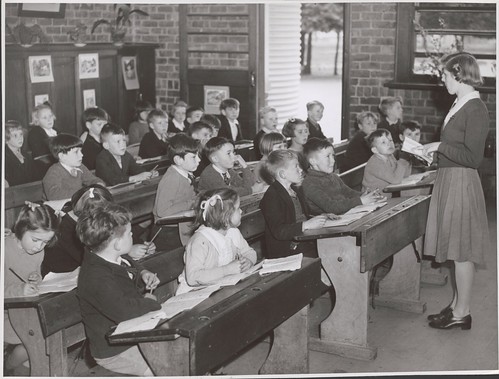Scientific literacy is the knowledge and understanding of scientific concepts and processes required for everyday experiences, for example decision making. Scientific literacy allows a person to read or hear an article or newspaper online and decide on its validity. A literate person should be able to evaluate the worth of certain scientific information based on the sources and methods used to produce the conclusion or argument appropriately. It is important for educators to give students the opportunity to develop their understanding of scientific concepts and processes and show how they relate to our society. Without scientific literacy children are more likely to buy into false scientific facts and findings.
According to the Organisation for Economic Co-operation and Development, scientific literacy is, “the capacity to use scientific knowledge, to identify questions and to draw evidence-based conclusions.” (OECD, 2003) Without this there would be no evidential backing to many scientific theories and scientific knowledge. The reason that science, for many people makes sense, is because everything is backed up with evidence and research. However, there are many times in the media where scientific literature is used incorrectly, or even not at all. An article written by Ben Goldacre (2016) explains how many new drug trials and testing do not give an accurate idea of how good the drug is. This is due to a lack of testing and a small amount of people in the trials. Without this explicit scientific data, there is no way a correct conclusion can be made about the new drugs. If proper testing was carried out, there would be a higher chance new drugs would either be more effective or pulled before being released to the public to save people having undue side effects. This also gives people the wrong impression of drug trials, as the lack of concrete scientific evidence means there is no proof, however if this is missed out completely in media then nobody will think bad of it.
How teaching Fair testing in schools links to scientific literacy:
A fair test is an experiment where you change one factor (variable) at a time whilst keeping all other factors and conditions the same. For example, if you are measuring what object travels fastest down a ramp you would only change the object and not the angle of the ramp or the force the object is pushed with.
Fair testing is taught throughout primary school with the help of other science topics. Through this, children develop skills and independence in planning and performing fair tests.
Fair testing is taught throughout the curriculum and not as a separate topic a it involves a variety of skills. Children will use fair testing as a way to investigate questions within every science topic from plants to forces.
Fair testing links to scientific literacy as it shows “knowledge and understanding of scientific concepts and processes required for personal decision making” (discover magazine). Children require specific skills to carry out fair testing that shows they have adequate scientific literacy for that stage they are working at.
Science Buddies (Undated) Available at: https://www.sciencebuddies.org/science-fair-projects/science-fair/doing-a-fair-test-variables-for-beginners (Accessed on: 9th February) What is a fair test? (Undated) Available at: (https://www.theschoolrun.com/what-is-a-fair-test, (Accessed: 9th February)
Kirshenbaum, S (2009) ‘ What is Scientific Literacy?’, Discover (March), Available at: http://blogs.discovermagazine.com/intersection/2009/03/17/what-is-scientific-literacy/#.WoA1qFJ0egQ (Accessed: 9th February)
OECD [Organisation for Economic Co-operation and Development] (2003) The PISA 2003 Assessment Framework – Mathematics, Reading, Science and Problem-Solving Knowledge and Skills. Paris: OECD.
Goldacre, B. (2016) The Cancer Drugs Fund is producing dangerous, bad data: randomise everyone, everywhere! Available at: http://www.badscience.net/2016/09/the-cancer-drugs-fund-is-producing-dangerous-bad-data-randomise-everyone-everywhere/ (Accessed 11 February 2018).


